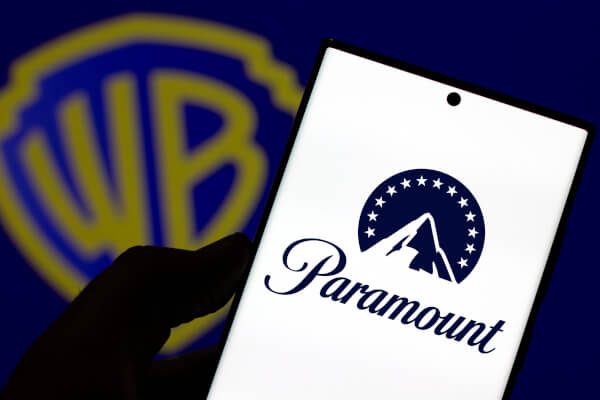The meme stock rush that fueled Wall Street excitement in 2021 has once again swept the stock market. The alleged return of legendary user @RoaringKitty, the icon behind the WallStreetBets group's speculative raids after three years of inactivity, caused GameStop and AMC shares to gain 180% and 135%, respectively, since the beginning of the week. A cryptic tweet on Keith Gill's X platform (real name @RoaringKitty) raises expectations for the return of the euphoria of speculators affiliated with the WallStreetBets group, which led to spikes of several hundred percent on many companies 3 years ago. What about all the action is worth knowing and what does it stem from? Let's check it out together.
A brief history of the meme world 😎
WallStreetBets, or WSB, is a subgroup on the Reddit platform where participants discuss their way of trading stocks and options on stock markets. What sets this group apart, however, is its colorful and vulgar jargon, which, combined with aggressive trading strategies, is perfectly suited to the tastes of the young 21st century generation. In 2021, it was the birthplace of the trend of aggressive buying of shares of user-selected listed companies, which often struggled financially and recorded astronomical gains on the stock market. A little later, the whole trend also moved to the cryptocurrency market, which, for adrenaline-thirsty fresh investors, was the perfect place to risk their life savings.
However, you need fuel for astronomical gains, and any informed investor knows that the retail side (investors with relatively small capital) is not responsible for a significant share in creating volatility in the market. In 2023, for example, this share was about 20%, and this data is subject to considerable statistical error. However, small investors have discovered that the stocks of many companies they know, which have become the pop culture icons of Generation Z and the Millenials, have been exposed by large-cap hedge funds, which, driven by cool calculation, have been betting on declines in stock prices (so-called short selling) of companies that have not moved with the times and have struggled financially.
In many cases, the percentage of positions betting on declines was so large that it completely exceeded the number of shares available for trading on the market. It's hard to sell more than you actually have, but modern finance has provided us with tools for which nothing is impossible. Thus was born the idea that, in rebellion against corporate domination, combined with ordinary human greed, we should unite under one banner to try to lift the stock prices of failing companies upward.
A clash between David and Goliath ⚔️
What could be the effect of a sudden surge of interest in the shares of a company that is on the verge of bankruptcy and has long been seen as a lost stock? Of course, the effect has been sizable price increases. The whole point, however, is that given the powerful positioning of funds in short positions (earning money on declines), higher gains force many of them to close these transactions, which further fuels price increases (since covering a short position involves repurchasing previously sold shares).
Such was the snowball effect created in the market, which is colloquially known as the short squeeze. In 2021, as now, it is responsible for astronomical increases in the price of shares of selected companies, and its scale depends on how many % of shares of a given company are sold short and how much interest a given share creates among small investors.
Funds and retailers do not have it easy... 🏛️
Investing in the stock market is a zero-sum game. My win is your loss and vice versa. Not surprisingly, the clash between small investors and capital-rich funds will be a tough fight. It brings both many spectacular wins, when investors on the Internet brag about the dizzying amounts of money they have earned, and losses, which often reach a lifetime's savings. The situation is similar on the corporate side. In the long term, it seems that the amount of capital will prevail and allow further earnings on a poorly performing stock, but in the medium term such a fund may struggle with losses reaching tens of billions of dollars. Nearly $20 billion were lost by funds in 2021 on WSB action, this time, as of Monday, the amounts only reach $3 billion.
“Meme stocks” are not just GameStop or AMC 💡
The fact is that in the media it is GameStop and AMC that are put up as a symbol of Wall Street's speculative fervor. It is around them that the narrative of the fight against “bad funds” that have paved the way for “easy” and big money by betting on falling stock prices of companies that are teetering on the brink of bankruptcy is created. Also helping to build this narrative are the celebrities who fuel this excitement. We're talking primarily about Elon Musk, Mark Cuban or even the controversial Tate brothers. However, as I mentioned earlier, Wall Street Bets fever is a message that spreads to many other companies. For the most part, however, they share a common denominator, which is:
- A large proportion of short positions (positions that make money on price declines) relative to the total number of shares in free float (from Short Interest). Example: SunPower, MicroCloud Hologram or Maxeon Solar.
- Deteriorating financial performance of a given company, which puts it sometimes on the brink of bankruptcy. Example: AMC.
- A recognizable and sentimental brand that many investors associate with from years gone by, or a company that still operates in highly advanced sectors of the economy. Very often interest is also attracted by sounding company names or their stock market abbreviations (tickers). Example: Lucid Group, EVgo or Virgin Galactic.
Bottom line - a bubble... almost always bursts 💥
The metaphor of the invisible hand of the market presented by Adam Smith states that the market regulates itself, thus ensuring the most logical distribution of asset allocation in the market. The mania of meme companies arouses the interest of investors, who, looking for large and quick profits, plug into the wave of speculation, a certain market game. Their decisions, however, are not based on a fundamental analysis of the business in question, but on ad hoc measures of emotion.
In the short term, in fact, they very often determine market sentiment, after which they further give way to very pragmatic aspects. At least, that's what written knowledge, combined with a dose of historical statistics, says. However, it's worth remembering that markets are not always efficient (at least that's the opinion of the author of this post), so the period of heightened interest in meme stocks may last as long as the involvement of retail investors themselves doesn't naturally begin to decline or the fundamental situation on them doesn't change. Until then, we can expect all sides of the market “game,” emotion-driven retailers as well as funds focused on cool calculation, to provide us with considerable excitement over the coming days on a Wall Street built from numerous ups and downs.
Mateusz Czyżkowski
XTB Financial Markets Analyst

Paramount Skydance shares under pressure after S&P warning

Broadcom as the Last of the Big Tech. What Can Markets Expect from the Earnings?

Nvidia Faces New H200 Limits in China

US Open: Wall Street in Blood
The content of this report has been created by XTB S.A., with its registered office in Warsaw, at Prosta 67, 00-838 Warsaw, Poland, (KRS number 0000217580) and supervised by Polish Supervision Authority ( No. DDM-M-4021-57-1/2005). This material is a marketing communication within the meaning of Art. 24 (3) of Directive 2014/65/EU of the European Parliament and of the Council of 15 May 2014 on markets in financial instruments and amending Directive 2002/92/EC and Directive 2011/61/EU (MiFID II). Marketing communication is not an investment recommendation or information recommending or suggesting an investment strategy within the meaning of Regulation (EU) No 596/2014 of the European Parliament and of the Council of 16 April 2014 on market abuse (market abuse regulation) and repealing Directive 2003/6/EC of the European Parliament and of the Council and Commission Directives 2003/124/EC, 2003/125/EC and 2004/72/EC and Commission Delegated Regulation (EU) 2016/958 of 9 March 2016 supplementing Regulation (EU) No 596/2014 of the European Parliament and of the Council with regard to regulatory technical standards for the technical arrangements for objective presentation of investment recommendations or other information recommending or suggesting an investment strategy and for disclosure of particular interests or indications of conflicts of interest or any other advice, including in the area of investment advisory, within the meaning of the Trading in Financial Instruments Act of 29 July 2005 (i.e. Journal of Laws 2019, item 875, as amended). The marketing communication is prepared with the highest diligence, objectivity, presents the facts known to the author on the date of preparation and is devoid of any evaluation elements. The marketing communication is prepared without considering the client’s needs, his individual financial situation and does not present any investment strategy in any way. The marketing communication does not constitute an offer of sale, offering, subscription, invitation to purchase, advertisement or promotion of any financial instruments. XTB S.A. is not liable for any client’s actions or omissions, in particular for the acquisition or disposal of financial instruments, undertaken on the basis of the information contained in this marketing communication. In the event that the marketing communication contains any information about any results regarding the financial instruments indicated therein, these do not constitute any guarantee or forecast regarding the future results.


